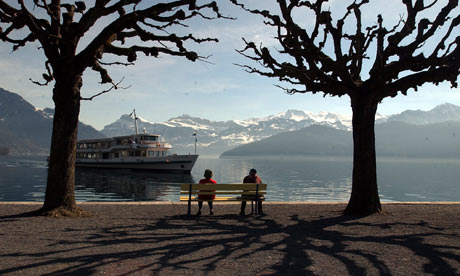
One of the strange anomalies in the Booker's long and (reasonably) exalted history is the fact that JG Ballard never won it. Not for the Drowned World. Not for High Rise. Not for Crash. Not for Cocaine Nights. Not – most notably – for Empire Of The Sun. A quarter-century on, this failure to reward greatness seems a travesty. Even at the time it annoyed plenty of critics and Anita Brookner, the writer lucky-unlucky enough to be chosen in his place, took a lot of stick.
Malcolm Bradbury called her winning novel, Hotel du Lac, "parochial", and thundered that it was not the sort of book that should have won the Booker. The New Statesman said it was "pretentious" although did at least do Brookner the kindness of noting that "it wasn't her fault that she won the prize." The author herself half-apologised that her books are "quite nice but unimportant" and suggested it might have been better if Empire Of The Sun had won in its place. She was right. Both from the point of view that Empire Of The Sun is so very good, but also because of the anger her victory provoked. The sense of outraged justice created by the perception that Hotel du Lac usurped Ballard's crown is unfortunate. This is not a book that should enrage. It is actually one that should be admired and enjoyed. Quietly maybe, but still fervently.
Written in clean and simple, but also subtly suggestive, prose it tells of Edith Hope, a romantic novelist on a "curious interlude in her life". She has been forced into temporary exile in the "stolid" Swiss hotel of the book's title after a romantic indiscretion that has outraged her friends so much that they have ordered her away to have a good long think.
At first, Edith does indeed mope around, failing to write her latest blousy novel, trying to decide how she should make her way through life and soaking up and reflecting back the melancholy atmosphere of her surroundings. This pathetic fallacy is wonderfully handled, and the descriptions of the quiet, snooty hotel, where one imagines the air is almost as heavy as the old-fashioned furniture, are as evocative as they are amusing:
"As far as guests were concerned, it took a perverse pride in its very absence of attractions, so that any visitor mildly looking for a room would be puzzled and deflected by the sparseness of the terrace, the muted hush of the lobby … There was no sauna, no hairdresser and certainly no glass cases displaying items of jewellery; the bar was small and dark and its austerity did not encourage people to linger."
Meanwhile, the portrayals of the other guests are positively – delightfully – cruel, especially the overbearing, over-monied Mrs Pusey and her curiously devoted daughter who decide to make cheering Edith up their project. Naturally, they only really succeed in boring and patronising her, but even so the distraction they and others provide lifts Edith from her solipsism and it comes as a pleasant surprise somewhere around the two-thirds mark to realise that Edith is on the mend.
But as things start to get brighter for the heroine, they unfortunately get duller for the reader. Brookner's prose is so splendid in its own right that Hotel du Lac never felt less than impressive to me. But the understated and all too realistic discomfort of the opening gives way to something more overwrought. After pages and pages of delightfully painful getting-to-know-you small talk the characters suddenly seem to know each other far too well. It jars when these near strangers start in with the deep dark teatime of the soul and begin analysing each other in often insulting detail. One guest, Mr Neville, even proposes to Edith. He says: "I need a wife whom I can trust" (no matter that he has only known her for a matter of days). He reasons that she might as well take up his offer since at the moment "you are desolate."
Of course, Brookner's sly humour is still at play and plenty of the absurdity of this proposal is intentional. But it's still a misstep, plunging the reader out of the suspension of disbelief and making a previously very natural narrative seem contrived. It's hard to take Edith and her world entirely seriously from this point on and the ending, although elegant and enjoyably provocative, doesn't quite ring true. Such problems knock the book some way back from being the "classic" the Spectator once declared it, but it's worth saying again that this is a book to enjoy for what it is rather than what it isn't. It's a funny, flawed, but still beautifully written study in melancholy. A pleasure. Even if it isn't as good as Empire Of The Sun.
Next time: The Bone People by Keri Hulme

